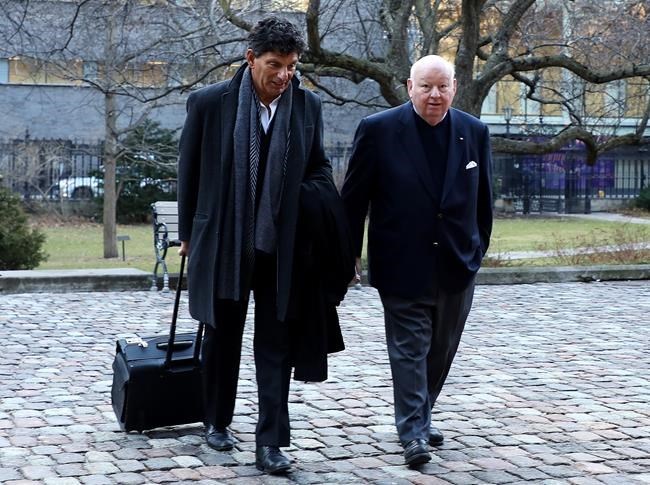OTTAWA — Mike Duffy is retiring from the Senate, a parliamentary chamber that has been fundamentally transformed as a result of his turbulent 12-year term as a senator.
Duffy was the central figure in the expenses scandal that rocked the upper house to its foundations in 2012 and eventually led to 31 criminal charges against him.
He was ultimately acquitted on all charges in 2016, with the judge blasting former Conservative prime minister Stephen Harper's office for its "mind-boggling and shocking" attempt to manage the scandal and push senators around like "mere pawns on a chessboard."
That included forcing Duffy to pretend that he'd repaid $90,000 in secondary housing expenses he believed he was legally entitled to claim, even though the money had actually come from Harper's chief of staff, Nigel Wright.
Duffy, who reaches the mandatory retirement age of 75 on Thursday, is leaving on a bitter note, angry that the Senate has refused to reimburse him for the two years he was suspended, without pay, from the upper house.
Last February, the Supreme Court refused to hear an appeal of a lower-court ruling that blocked Duffy from suing the Senate for millions of dollars over his suspension.
"The Senate is unelected and unaccountable to anyone other than itself. Sadly, that concept has been twisted to mean that senators are not permitted the procedural fairness available to every other resident of Canada," Duffy said in a swan-song address to the Senate last month.
"Sadly, reform-minded senators are learning that making change here is not easy."
But in reality, the Duffy affair triggered the most radical transformation of the Senate since its inception in 1867.
It prompted Justin Trudeau, then leader of the third-place Liberal party, to boot all senators out of his party's parliamentary caucus in 2014. That was based on his diagnosis that the root of the expenses scandal was hyper-partisanship and patronage appointments that had diverted the upper house from its intended role as an independent chamber of sober second thought.
He followed that up on becoming prime minister a year later by setting up an arm's-length advisory body to recommend non-partisan nominees for appointment to the Senate.
There are now 70 senators who are members of Senate groups with no partisan affiliation. Just 20 remain in the Conservatives' Senate caucus, the last remaining unabashedly partisan group.
With Duffy's departure, there are 15 vacancies in the 105-seat chamber.
A Parliament Hill journalist and broadcast news fixture for more than three decades, Duffy was sworn into the Senate in January 2009 after his appointment by then-prime minister Harper.
He was appointed to represent the province of Prince Edward Island. The subsequent controversy over his expenses revolved around him declaring his P.E.I. cottage to be his primary residence while claiming secondary living expenses for his longtime Ottawa residence.
The controversy engulfed the Senate for years, resulting in the suspensions of two other senators — Pamela Wallin and Patrick Brazeau — and eventually an audit that concluded 30 senators had inappropriately claimed expenses and recommended police investigations into nine of them.
Other investigations and charges that were laid against one former senator, Mac Harb, were dropped after Duffy's acquittal.
Without the series of events triggered by the Duffy affair, Sen. Peter Harder doubted Wednesday that Trudeau would ever have embarked on the reforms that have turned the Senate into a much more independent body that is no longer directed by the Prime Minister's Office.
"Without that, we wouldn't have had independent senators being appointed," said Harder, who served as the first government representative in the evolved Senate and now sits in the Progressive Senate Group.
"It would've been completely different. I think it's a huge change."
This report by The Canadian Press was first published May 26, 2021.
Joan Bryden, The Canadian Press



